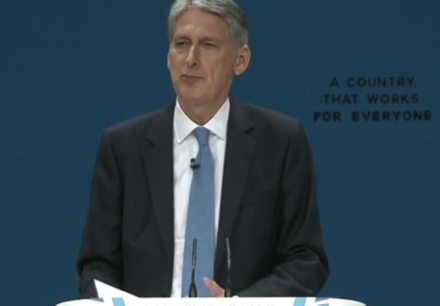
The overwhelming majority of Tory tax cuts since 2010 have gone to the rich, a new report finds today.
The left-leaning Resolution Foundation said around four-fifths of the £21bn which will be spent by 2020 on raising the personal allowance – the rate at which workers start to pay income tax – have gone to the most affluent half of households.
It goes on to call on chancellor Philip Hammond to use his planned “fiscal reset” to reverse planned tax cuts which are “unaffordable, unfair and unwise”.
“The £32bn worth of tax cuts announced since 2010 has been the difference between the government hitting and missing its deficit reduction targets in the last Parliament, or indeed in this one,” said Matt Whittaker, chief economist of the Resolution Foundation.
“Tax cuts on this scale have clearly played a role in supporting household incomes, though around four-fifths of the £21bn due to be spent on raising the personal tax allowance by 2020 will have actually gone to the richest half of households.”
Hammond has already dropped George Osborne’s plan for an absolute surplus on government spending on 2020 and is expected to pledge a small fiscal stimulus when he rises to deliver his first Autumn Statement on November 23.
Resolution said tax giveaways this year have prevented the government from meeting its fiscal targets.
The think tank said “expensive” tax cuts implemented by Osborne – including the £17bn annual cost of raising the personal allowance, £8bn of headline corporation tax cuts and £7bn in fuel duty freezes – more than match the current budget deficit of around £30bn that Hammond is expected to face in 2016-17.
John McDonnell, the shadow chancellor, said: “This report underlines Labour’s argument that the government’s economic priorities have been wrong, and they must now urgently reconsider their determination to cut corporation tax to benefit big business.
“The size of these giveaways underlines that slashing employment support allowance, universal credit and local council funding was unnecessary and a clear example of the Tories’ skewed priorities.
“Austerity is a political choice, not an economic necessity. Labour would instead invest for the future to deliver growth that can be shared across the country, so that nobody and no community is left behind.”




More from LabourList
Turning the page? Labour’s recovery in the polls show a path to 2029 victory
Restoration announce recommendations for NEC candidates
‘Factionalism at the top is weakening Labour – and handing a gift to Reform’